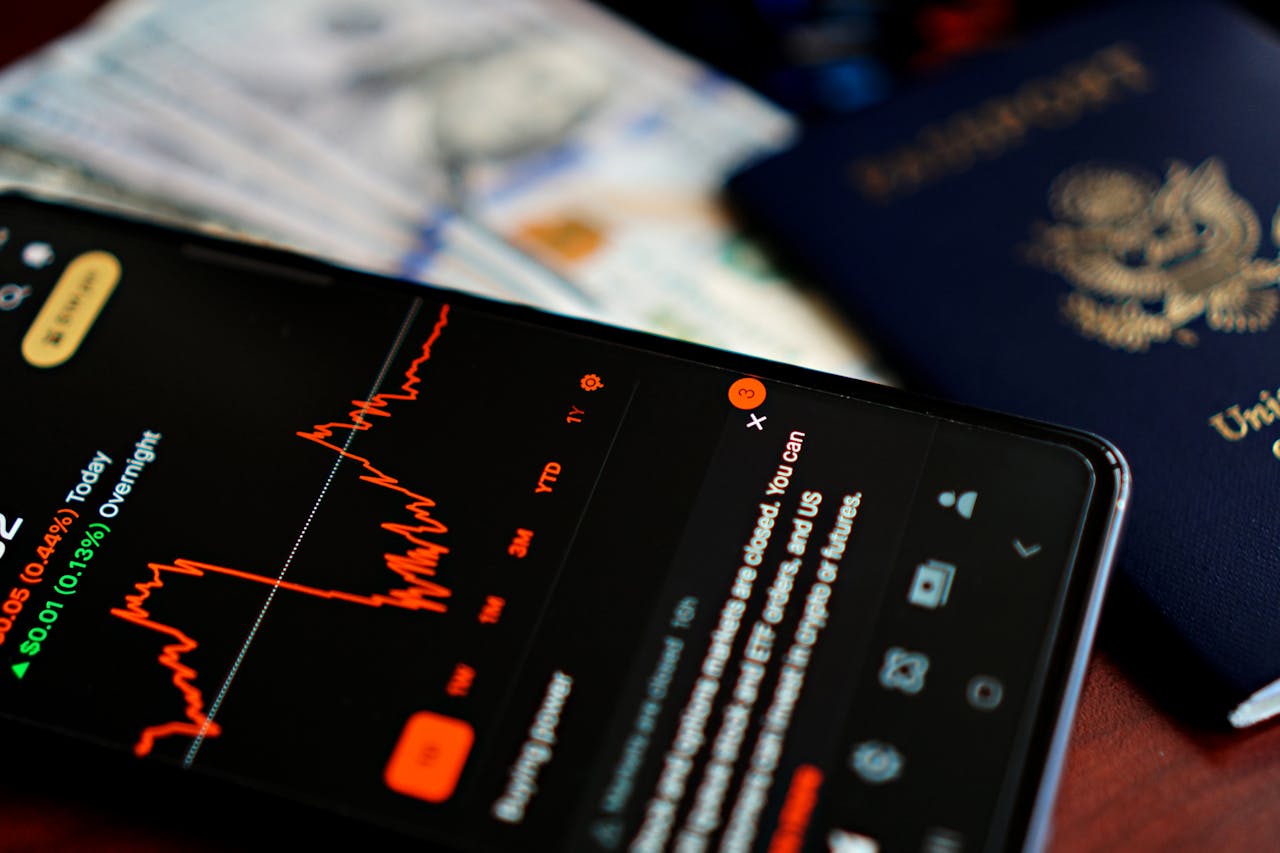1. What Is Inflation? What Is Deflation? These Affect Your Everyday Life More Than You Think
When it comes to “inflation” and “deflation,” many people react by saying, “What does that have to do with me?” But in reality, whether you’re working a 9-to-5, running a small business, investing in stocks, or just trying to support your family, these two terms influence how much you spend, how much you earn, and even how stable your next few years will be.
2. Inflation: When Money Loses Value and Life Quietly Gets More Expensive
What is inflation?
Put simply, inflation means your money is losing purchasing power, and prices of goods and services are rising overall. For example, if that coffee combo cost $4.50 last year but now costs $5.20, and your salary hasn’t gone up much—then you’re feeling inflation.
What causes inflation?
Several reasons might trigger it:
- Businesses face higher raw material costs and pass that on to consumers;
- Governments print too much money, leading to a surplus of cash in the market;
- Rising labor costs push prices up;
- Global shocks like wars or supply chain issues also cause price hikes.
2025 real-life case study
In 2025, the U.S. Consumer Price Index (CPI) rose 3.2% year-over-year. That might seem mild, but core costs like rent, healthcare, and insurance jumped much more—insurance alone surged nearly 18%, surprising many families with significantly higher daily expenses.
Meanwhile in Europe, the price of milk in German supermarkets rose 12% in one year, forcing many lower-income families to say: “We’re not cutting milk because we want to—we simply can’t afford it anymore.”
3. Deflation: When Money Gains Value But People Stop Spending, And That’s a Problem
What is deflation?
Deflation means prices for goods and services fall overall, making your money more valuable. Sounds great, right? But it becomes an issue when everyone delays purchases thinking prices will fall further. You wait to buy that TV because it’s 20% off this week, but who knows—maybe 30% off next week?
Why is deflation dangerous?
While falling prices might feel like a win for consumers, widespread deflation causes:
- Businesses to earn less, leading to layoffs and production cuts;
- Wage freezes or pay cuts as revenues shrink;
- A “wait and see” mindset across society, spiraling into an economic slowdown.
2025 real-life case study
In 2025, Japan once again struggled with structural deflation. Property prices in Tokyo fell 4%, but transactions also dropped—people preferred renting, expecting prices to fall more. This led to lower profits for real estate firms and mass layoffs in the construction sector.
In Southern Italy, apparel and durable goods prices dropped by 8%, yet consumer spending didn’t pick up. Young adults were more concerned about job security than buying new clothes.
4. How Inflation and Deflation Affect Real Life
| Impact Area | Inflation | Deflation |
|---|---|---|
| Food Prices | Noticeable increase, higher living cost | Cheaper, but lower spending appetite |
| Wage Levels | May rise, but slower than prices | Wages freeze or decline |
| Investment Behavior | Assets like real estate or stocks gain | People prefer saving over investing |
| Business Operations | Higher costs, harder pricing decisions | Shrinking profits, fewer orders |
| Social Psychology | “Buy now, or it’ll cost more tomorrow” | “Wait, it might get cheaper” |
5. How Does an Individual Feel Inflation and Deflation?
Imagine you’re an average salaried employee:
- During inflation, your lunch box goes from $8 to $9.50, rent jumps $200, but your paycheck barely changes. You start stressing over your shrinking savings.
- During deflation, your company sees fewer orders. Management begins hinting at “team restructuring.” You get nervous about job security and cut back on spending.
In other words, inflation brings visible anxiety; deflation brings silent chill.
6. Frequently Asked Questions (FAQ)
Is inflation always a bad thing?
Not necessarily. Moderate inflation (around 2%) is considered healthy for the economy. It encourages spending and investment, which fuels economic growth. The problem arises when inflation becomes too high (like 8–10%) and starts eroding purchasing power faster than wages can keep up.
Why does deflation sound good but hurt the economy?
At first glance, falling prices seem like a win for consumers. But when people delay purchases expecting even lower prices, businesses make less money, reduce hiring, or cut wages. This triggers a vicious cycle of lower demand, lower production, and eventually job losses.
How do inflation and deflation affect my salary?
- With inflation, your salary may rise, but often not fast enough to keep up with rising prices—so your “real income” may fall.
- With deflation, employers face revenue pressure and may freeze or reduce wages. That means your paycheck might stay the same or even shrink, even if prices drop.
Can I protect myself from inflation or deflation as an individual?
Yes, to some extent:
- During inflation, consider investing in inflation-resistant assets like real estate, gold, or inflation-indexed bonds.
- During deflation, cash is more valuable, but job security becomes a priority—building an emergency fund and reducing debt are key.
Why is Japan always used as a deflation example?
Japan has faced persistent deflation since the 1990s due to a mix of demographic decline, weak domestic demand, and low consumer confidence. Even in 2025, Japan continues to experience price stagnation in housing and retail sectors—making it a classic case of long-term deflation.
7. These Terms Are Not Just Economics, They’re Everyday Reality
Whether it’s inflation or deflation, these aren’t just cold economic indicators. They show up in every monthly bill you pay, every meal you buy, and every job offer (or lack of) you receive. The macro world always finds a way to show up in our micro lives.



